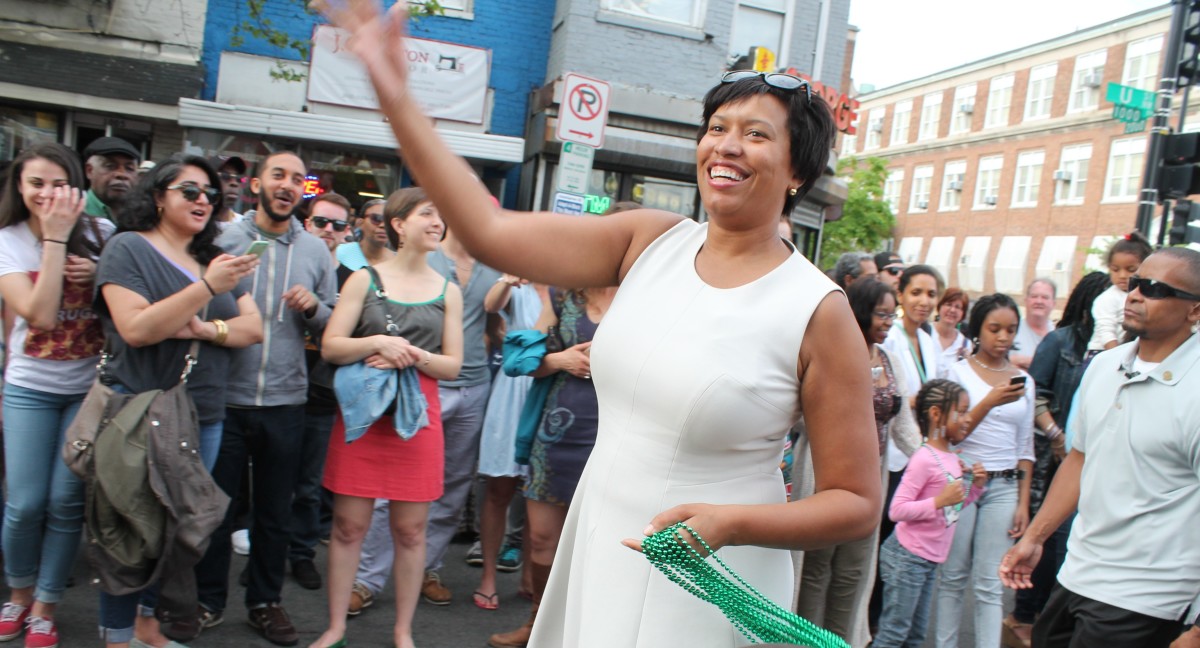After attracting more than 100 developers and entrepreneurs within 21 submissions, Mayor Muriel Bowser and the Office of the Chief Technology Office (OCTO) announced the six semifinalists who will compete in the Gigabit DC Challenge (GigabitDCx).
The challenge was created to give the community a chance to address the city’s traffic and changing climate by creating gigabit apps, Technical.ly DC previously reported. These six semifinalists will advance to the second phase of the challenge and begin to develop their concepts and build prototypes of their proposed solutions for a chance to receive or split up to $34,000 in award funds, a press release states. Semifinalists will have the opportunity to work with the D.C. government to beta-test their solutions.
Here’s a look at the semifinalists (with descriptions from OCTO):
- Mark Sussman and Daniel Schep from Washington, D.C., for How’s My Driving DC? Mobile App, a crowdsourcing solution for pinpointing DC’s most habitually dangerous drivers.
- George Washington University’s Transportation Team of D.C., for Road Vision, Keeping an Eye on Traffic, an information sharing app that translates video feeds from different sources into traffic mobility and safety information.
- Kenneth Walton, of D.C., for Corner BOI (Curbside Public Health), a patient navigator that fosters empowerment, informs and enhances the ability of patients to make decisions that lead to better medical care.
- Dorin Munteanu and Radu Motisan, of D.C., with uRADMonitor, and their real-time Environmental Monitoring Network aimed at collecting and storing urban air quality data through a modern, cost-effective and easy to deploy technology.
- Sunny Sanwar’s team, who are from Kansas, created Dynamhex, a Data-layer for Inclusive Climate Goals & Progress, on top of which smart-city visualization platforms are created. Using machine learning, it empowers stakeholders to inclusively and affordably meet the D.C. Climate & Energy Action Plan.
- Andrew Kamal, of Michigan, is creating the Underwater Wireless Sensory Network that can track information about our waterways with a noiseless signal.
All of the finalists will get a 25 percent discount on any WeWork Labs or physical office membership to WeWork at 80 M Street SE. The awarding funds will come from the Bowser Administration’s partnership with US Ignite and the Smart Gigabit Communities program.
The six semifinalists will demo and pitch their solutions to a panel of judges on Jan. 30, 2019, at WeWork at 80 M Street SE. You can access and follow the challenge here.
Before you go...
Please consider supporting Technical.ly to keep our independent journalism strong. Unlike most business-focused media outlets, we don’t have a paywall. Instead, we count on your personal and organizational support.
3 ways to support our work:- Contribute to the Journalism Fund. Charitable giving ensures our information remains free and accessible for residents to discover workforce programs and entrepreneurship pathways. This includes philanthropic grants and individual tax-deductible donations from readers like you.
- Use our Preferred Partners. Our directory of vetted providers offers high-quality recommendations for services our readers need, and each referral supports our journalism.
- Use our services. If you need entrepreneurs and tech leaders to buy your services, are seeking technologists to hire or want more professionals to know about your ecosystem, Technical.ly has the biggest and most engaged audience in the mid-Atlantic. We help companies tell their stories and answer big questions to meet and serve our community.
Join our growing Slack community
Join 5,000 tech professionals and entrepreneurs in our community Slack today!

The person charged in the UnitedHealthcare CEO shooting had a ton of tech connections

From rejection to innovation: How I built a tool to beat AI hiring algorithms at their own game

Where are the country’s most vibrant tech and startup communities?



